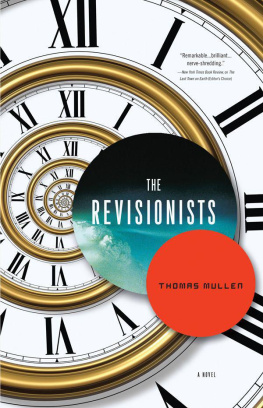Mullen Bill V. - W. E. B. Du Bois on Asia
Here you can read online Mullen Bill V. - W. E. B. Du Bois on Asia full text of the book (entire story) in english for free. Download pdf and epub, get meaning, cover and reviews about this ebook. year: 2005, publisher: University Press of Mississippi, genre: Politics. Description of the work, (preface) as well as reviews are available. Best literature library LitArk.com created for fans of good reading and offers a wide selection of genres:
Romance novel
Science fiction
Adventure
Detective
Science
History
Home and family
Prose
Art
Politics
Computer
Non-fiction
Religion
Business
Children
Humor
Choose a favorite category and find really read worthwhile books. Enjoy immersion in the world of imagination, feel the emotions of the characters or learn something new for yourself, make an fascinating discovery.

- Book:W. E. B. Du Bois on Asia
- Author:
- Publisher:University Press of Mississippi
- Genre:
- Year:2005
- Rating:4 / 5
- Favourites:Add to favourites
- Your mark:
- 80
- 1
- 2
- 3
- 4
- 5
W. E. B. Du Bois on Asia: summary, description and annotation
We offer to read an annotation, description, summary or preface (depends on what the author of the book "W. E. B. Du Bois on Asia" wrote himself). If you haven't found the necessary information about the book — write in the comments, we will try to find it.
W. E. B. Du Bois on Asia — read online for free the complete book (whole text) full work
Below is the text of the book, divided by pages. System saving the place of the last page read, allows you to conveniently read the book "W. E. B. Du Bois on Asia" online for free, without having to search again every time where you left off. Put a bookmark, and you can go to the page where you finished reading at any time.
Font size:
Interval:
Bookmark:
W. E. B. Du Bois on Asia
Crossing the World Color Line

Edited by Bill V. Mullen and Cathryn Watson

The editors gratefully acknowledge Dr. David Graham Du Bois for permission to reprint the following materials: India, The Color Line Belts the World, The World Problem of the Color Line, The Negro and Imperialism, The American Negro and the Darker World, The Union of Colour, The Clash of Colour: Indians and American Negroes, Man Power, What Japan Has Done, The Yellow Sea, China and Japan, The Color of Asia, A Chronicle of Race Relations [I], A Chronicle of Race Relations [II], Prospect of a World Without Racial Conflict, Nehru, The Freeing of India, Gandhi and the American Negroes, The Colonial Groups in the Postwar World, Indonesia, Burma, Malaya, Will the Great Gandhi Live Again?, Our Visit to China, The Vast Miracle of China Today, and China and Africa.
The editors gratefully acknowledge International Publishers Co., Inc., for permission to reprint Asia in Africa.
The editors gratefully acknowledge the National Association for the Advancement of Colored People for permission to reprint Listen Japan and China and Japan and Ethiopia.
www.upress.state.ms.us
The University Press of Mississippi is a member of the Association of American University Presses.
Illustration courtesy of Library of Congress, Prints and Photographs Division
Copyright 2005 by University Press of Mississippi
All rights reserved
Manufactured in the United States of America
First edition 2005

Library of Congress Cataloging-in-Publication Data
Du Bois, W. E. B. (William Edward Burghardt), 18681963.
W. E. B. Du Bois on Asia : crossing the world color line / edited by Bill V. Mullen and Cathryn Watson.1st ed.
p. cm.
Includes index.
ISBN 1-57806-791-X (cloth : alk. paper)ISBN 1-57806-820-7 (pbk. : alk. paper) 1. Race relations. 2. Racism. 3. Imperialism. 4. AsiaRace relations. 5. AsiaSocial conditions. 6. United StatesRace relations. 7. East and West. I. Mullen, Bill, 1959II. Watson, Cathryn. III. Title.
HT1521.D732 2005
305.8dc22
2005009666
British Library Cataloging-in-Publication Data available
Crossing the World Color Line
The Russo-Japanese war has marked an epoch. The magic of the word white is already broken, and the Color Line in civilization has been crossed in modern times as it was in the great past. The awakening of the yellow races is certain. That the awakening of the brown and black races will follow in time, no unprejudiced student of history can doubt.
W. E. B. Du Bois, The Color Line Belts the World, 1906
We have been compelled to admit Asia into the picture of future political and democratic power. We can no longer regard Europe as the sole center of the world. The development of human beings in the future is going to depend largely upon what happens in Asia.
W. E. B. Du Bois, The World Problem of the Color Line, 1945
Hail, dark brethren
Of mine,
Hail and farewell!
I die,
As you are born again,
Bursting with new life.
W. E. B. Du Bois, I Sing to China, 1959
W. E. B. Du Boiss lifelong interest in Asia and the vast body of writing he produced on it are both the least understood and the most neglected aspects of his storied intellectual career. From 1903, when he famously pronounced, in Souls of Black Folk, The problem of the twentieth century will be the problem of the color line, to his death in exile in Ghana in 1963, Du Bois consistently saw Asia as the fraternal twin to Africanand African Americanstruggle for political freedom and cultural self-preservation. In 1914, on the eve of World War I, Du Bois revised his color line trope as a hemispheric index to the worlds future. Predicting a great coming war of Races, Du Bois wrote:
If men would look carefully around them they would see that the Problem of the Color Line in America instead of being the closing chapter of past history is the opening page of a new era. All over the world the diversified races are coming into close and closer contact as never before. We are nearer China today than we were to San Francisco yesterday.
Well before it was fashionable to do so, Du Bois perceived globalization, national interdependence, and multiple ethnic diasporas as ineluctable elements of the modern world. Black and Asian nations and citizens stood at the crossroads of these phenomena in Du Boiss work. All of the major issues upon which he fixed his critical gazerace, nationhood, capitalism, labor, gender, imperialism, culture, colonialismwere at one time or another weighed by Du Bois on the basis of events in Asia. In the process, Du Bois spent inordinate intellectual effort which taxed both his expertise and at times political judgment to comprehend and theorize the place of Asia in the modern world. Asian history, economy, culture, political thought, religion, myth, and art were all subjects of his writing and study. Remarkably, given the range of his other, better-known accomplishments, Du Boiss work also offers the most copious canvas for understanding black-Asian exchange of any American or African American intellectual of the twentieth century.
Yet why, thus far, has this element of Du Boiss career been so overlooked? There is as yet a single book-length study to be written of Du Boiss work on Asia. Scholarly articles addressing Du Boiss writings on Japan, China, India, the South Pacific, or the Middle East are rare. Many of the major biographies of Du Bois, including the best ones, gloss or ignore the trips Du Bois made to the Soviet Union, China, and Japan, and tend to neglect the writing he did towards the end of his life in support of Chinas Communist revolution. There are a host of answers to this omission, I believe. They describe in part the difficulty of summing up the sheer scope and depth of Du Boiss life work. They also speak to a form of critical ethnocentrism, or hemispherism, Du Bois himself worked all his life to disarm. First, Du Boiss identification as the American founder of Pan-Africanism has focused attention on the capacious body of work and writing he did on that subject at the neglect of other elements of his career. From his attendance at the first Pan-African Congress meeting in London in 1900, to his organizing role in the 1945 conference in Manchester, England, Pan-Africanism provided Du Bois a public forum for his ideas and publishing venues for his thought that found no correspondent to his work on Asia. To take but one example: his essay The African Roots of the War, first published in 1915 and later published in revised form in Darkwater (1919), is one of Du Boiss most astute predictive essays about the role of Africa in the movement of twentieth-century European colonialism. Du Bois literally argues that World War I is grounded in interimperialist rivalry rooted in nineteenth-century colonization of Africa. Yet the same essay underscores historical relationships between Africa and Asia as a means of predicting the place of India, China, and the Middle East in the postwar world. Likewise, Du Boiss intimate friendship with Caribbean intellectual and Pan-African activists George Padmore and Ghanian President Kwame Nkrumah, his belated efforts to produce the Encyclopedia Africana, and his eventual death-in-exile in Ghana in 1963 have also bent the arc of Du Bois scholarship towards the African trajectory of his career. These notable events have obscured Du Boiss personal relationships to other internationalists like Lala Lajpat Rai, one of the founders of modern Indian nationalism, and Du Boiss generous written support for Sun Yat Sen, Jawa-harlal Nehru, Mao Tse-Tung, and Mahatma Gandhi, the latter perhaps the international leader of the twentieth century with whom Du Bois felt the closest kinship. In total, concentration on Du Boiss Pan-Africanism has occluded Du Boiss Pan-Asianism as well as the ways in which the two were complementary.
Next pageFont size:
Interval:
Bookmark:
Similar books «W. E. B. Du Bois on Asia»
Look at similar books to W. E. B. Du Bois on Asia. We have selected literature similar in name and meaning in the hope of providing readers with more options to find new, interesting, not yet read works.
Discussion, reviews of the book W. E. B. Du Bois on Asia and just readers' own opinions. Leave your comments, write what you think about the work, its meaning or the main characters. Specify what exactly you liked and what you didn't like, and why you think so.









